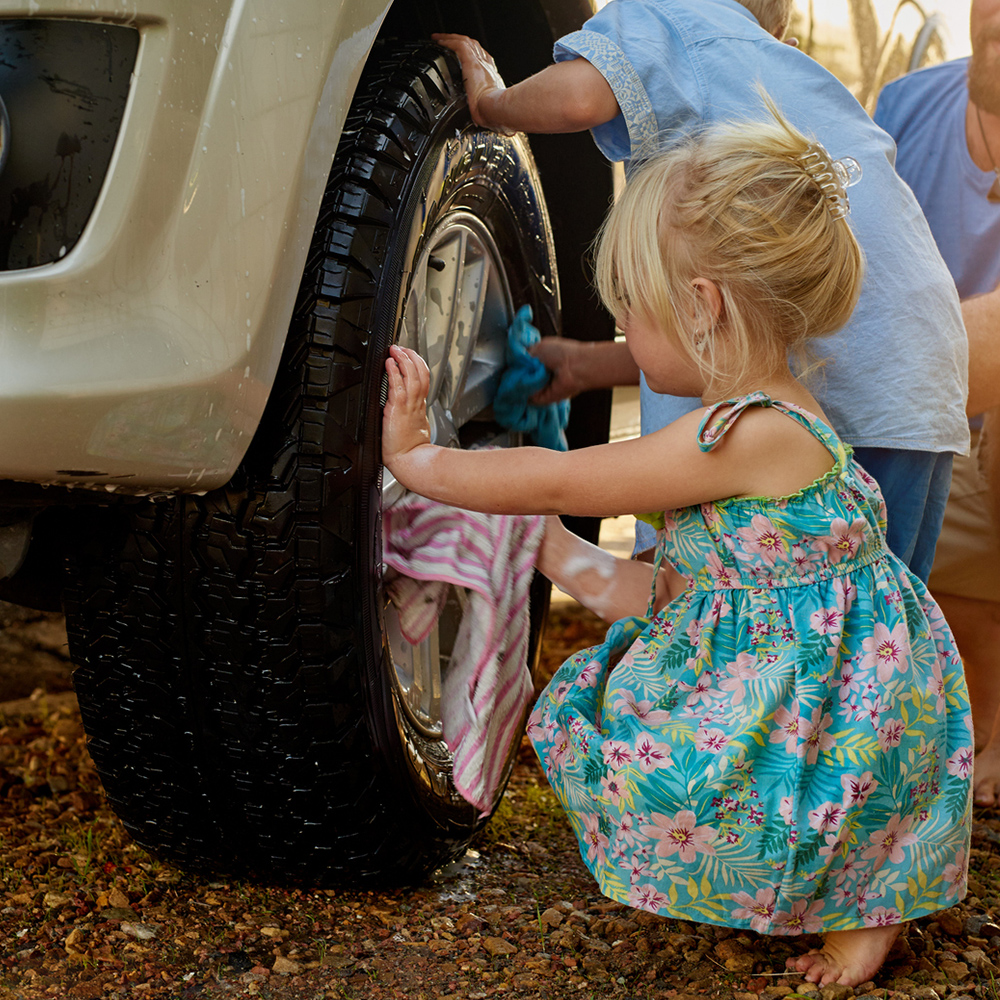Here are the most important things to check before you leave on a long summer road trip:
- Check Tire Air Pressure
- Check Tire Tread
- Check Spare Tire
- Check Oil and Fluids
- Fully Charge your Cell Phone
- Pack Extra Food and Water
When you are planning a summer road trip, you are thinking of what to pack, what stops to make and the route you’ll take. Tires may be the last thing on your mind, but a few minutes prior to leaving can help keep you and your passengers safe, and avoid unplanned delays for a tire repair or other maintenance.
Check tire air pressure:
Very few people know how to properly check air pressure even though it’s easy and not at all time consuming. All you need is a very basic air pressure gauge. Unscrew the valve cover and firmly press the gauge over the valve to measure the pressure. Compare your measurement to the information on the sticker on the inside of the driver’s door. If the tires have low air pressure, you can inflate them at your nearest service station.
Check tread depth:
Badly worn tires can compromise road grip and handling so it is important to check the amount of tread on your tires. When there is only 2/32nds of an inch left, the tires are legally worn out, or bald. If this is the case, not only is there a potential safety issue, but you could even be ticketed at a routine traffic stop!
There are two ways to check tire tread depth. The first is the “penny test”. Insert a penny into the tire tread groove, with Lincoln’s head facing down. If you can see the top of his head, then your tires are at 2/3nds of an inch or less, and you need new tires. If you want a more precise measurement, use a tread depth gauge. These cost about $3 to $8 at any auto parts retail store. To use, place the end of the probe into a tread groove, pressing down on the base of the gauge until it is seated flat against the tread block. The probe in the barrel of the gauge will indicate the tread depth reading. If the reading shows less than 3 or 4/32nds of an inch, then it is getting close to time to replace the tires for maximum safety on the roads.
Check the Spare Tire:
Spare tires are usually out of sight, and out of mind, so we forget that they need periodic maintenance as well. Tires can lose up to 2 lbs of pressure every month so it’s important to check the spare at the same time you check the other tires. While you’re at it, check the sidewall of the tire for any visible signs of cracking in the sidewall. If the tire is over 10 years old, and the cracks are deep, you will need to replace the tire.
Check wheel alignment and rotate tires:
If you see any signs of irregular wear in the tread, then you may be in need of wheel alignment. This will help your vehicle handling, as well as prolong the life of your tires. Your tires should be rotated at least twice a year, or every five to six thousand miles.
If you need to replace any of your tires, and dont need 4 tires replaced, be sure to match up the new tires with what you have on the vehicle. The same brand, tire style and size will ensure safe and predictable handling. You can find your tire size on the sidewall, and with the easy search feature on Giga-tires.com, it’s easy to find the tires you need at a price to fit your budget.
Other Easy Maintenance Checks and Recommendations to Stay Safe:
Like your tires, failure to check the fluid levels in your vehicle, could lead to problems. On hot summer days, over-heating is always a possibility if you are short on coolant. You know there is enough coolant in the radiator if there is some liquid in the over-flow resevoir. If the resevoir is dry, you should fill it up and make sure the hose reaches to the bottom of the container. When you start your vehicle, compresion will suck the coolant from the resevoir into the radiator.
In addition to doing the above tire and fluid checks before you leave, you should also be prepared for extended delays due to traffic, accidents or a mechanical break-down. In the summer, this means extra water and snacks to keep everyone comfortable while waiting.
